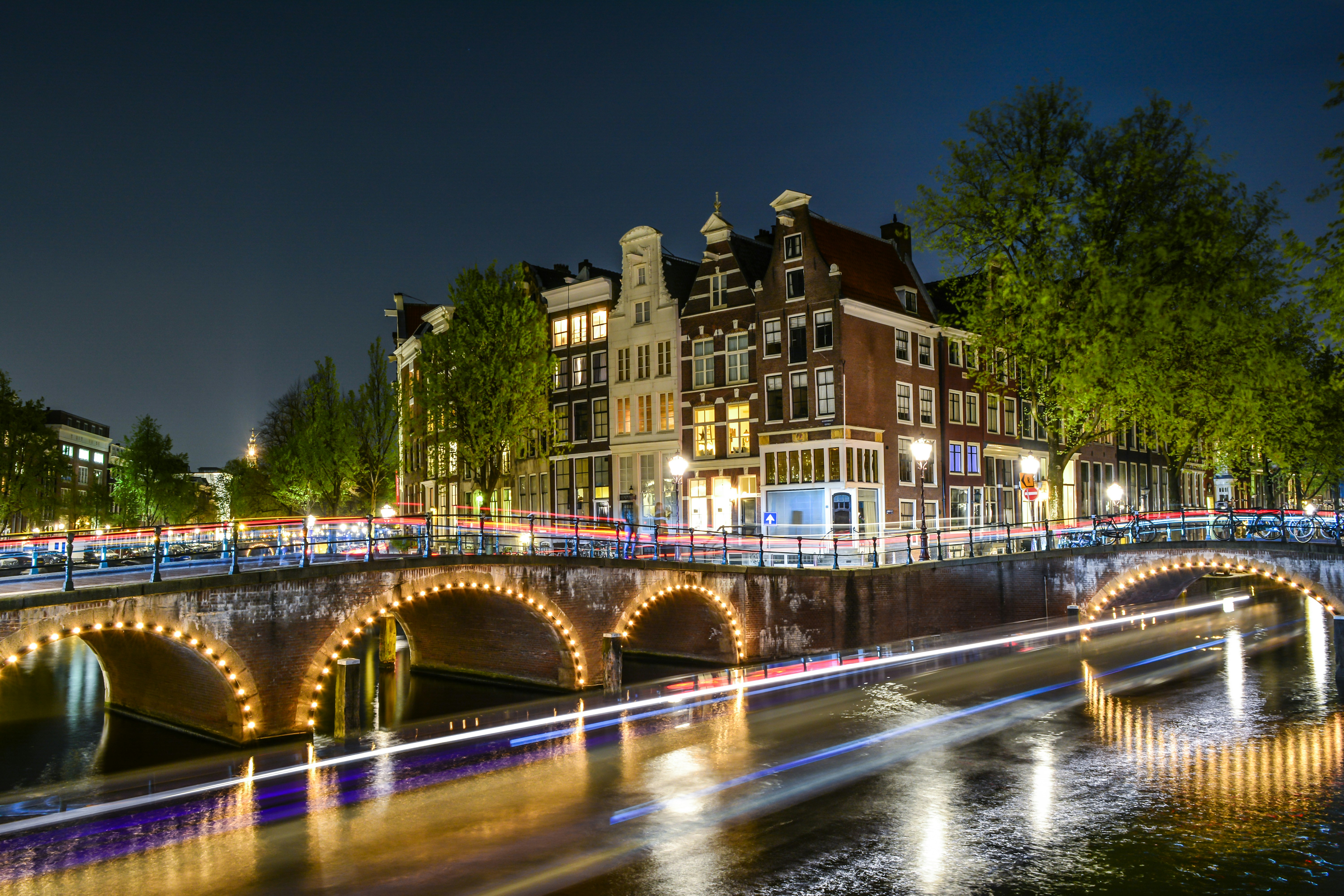What To Do In Your First Week After Moving To The Netherlands

Essential Tasks to Complete in Your First Week After Moving to the Netherlands
Moving to a new country, especially one as vibrant as the Netherlands, can be both exciting and overwhelming. Your first week is crucial for laying a solid foundation for your new life. Here are some essential tasks to complete in your first week after moving to the Netherlands.
Get Acquainted with Your Surroundings
Finding your way around is one of the first things you should do after settling in. Take a stroll around your neighborhood to discover nearby shops, cafes, and restaurants. Familiarize yourself with local parks and amenities. This will not only help you feel more comfortable in your new environment, but it also gives you the opportunity to meet locals and other expats.
Register with the Local Municipality
Within five days of your arrival, it’s essential to register with the local municipality (gemeente). This step is required for everyone moving to the Netherlands. You’ll need to provide proof of your address, such as a rental contract or utility bill. Registration is crucial because it allows you to obtain your citizen service number (BSN), which you will need for various services in the country.
Open a Dutch Bank Account
Having a local bank account is a significant step for managing your finances. Most banks in the Netherlands require your BSN to set up an account, so make sure to get this done after your registration. Explore different banks to find the one that offers the best services for your needs. Consider factors such as online banking options, fees, and accessibility in your area.
Set Up Utilities and Internet
Reliable utilities and internet are vital for your day-to-day life. Contact your utility provider to set up electricity, water, and gas services. Additionally, look for internet service providers to ensure that you have a stable connection for work and leisure. Many providers offer various packages, so choose one that best fits your usage requirements.
Understand the Health Care System
Health insurance is mandatory in the Netherlands, and it’s critical to secure coverage as soon as possible. Research different health insurance providers and choose a plan that suits your healthcare needs. You’ll need to enroll in a Dutch health insurance policy to comply with local laws, so prioritize this process in your first week.
Connect with the Expat Community
Feeling alone in a new place can be daunting. Connecting with the expat community can provide support and make your transition smoother. Look for local expat groups on social media or participate in meetups and events. These connections can lead to friendships and give you a chance to exchange tips about living in the Netherlands.
Learn Basic Dutch Phrases
While many Dutch people speak English, learning some basic Dutch phrases can help you navigate daily situations more easily. Try to pick up greetings, polite phrases, and directions. Even a little effort to speak the local language will be greatly appreciated by residents and can open up more opportunities for interaction.
- Learn how to say “hello” – Hallo
- Keep in mind “thank you” – Dank je wel
- Don’t forget “please” – Alsjeblieft
Explore Transportation Options
Getting around the Netherlands is convenient, thanks to extensive public transport. Familiarize yourself with trains, trams, and buses in your area. Get a public transport card, like the OV-chipkaart, which is essential for using the public transit system. Biking is also a popular way to explore, so consider renting a bicycle or investing in one.
Plan Your Finances
Managing your finances effectively from the start is key to settling in. Create a budget that accounts for essentials like rent, groceries, and transportation. Understanding the cost of living in the Netherlands will help you make informed decisions and avoid unnecessary stress in the long run.
Your first week in the Netherlands will set the tone for your new adventure. By tackling these essential tasks, you’ll have a smoother transition and a solid foundation to build upon. Enjoy this unique experience, and remember, each day is an opportunity to immerse yourself in Dutch culture and lifestyle!
Navigating Dutch Bureaucracy: Key Registrations and Paperwork
Moving to a new country can be both exciting and daunting, especially when it comes to navigating the bureaucratic landscape. The Netherlands is known for its efficient and well-organized systems, but if you’re unfamiliar with how things work, you might feel overwhelmed. Here’s a guide to help you through the essential registrations and paperwork you need to complete after relocating to the Netherlands.
Registering at the Municipality
One of your first tasks should be to register at your local gemeente (municipality). This step is crucial as it officially confirms your residence in the Netherlands. Here’s what you need to do:
- Visit your local gemeente office: Make an appointment and visit in person. You can’t register online.
- Bring necessary documents: You’ll need your valid passport or ID, proof of address (like a rental contract), and sometimes a birth certificate or marriage certificate.
- Fill out the application: You’ll be asked to complete a registration form during your visit. Make sure all your information is accurate.
Once registered, you’ll receive a BSN (Burger Service Number), which is essential for almost all aspects of life in the Netherlands.
Applying for a BSN
The Burger Service Number (BSN) is key to many activities such as opening a bank account, working, or accessing healthcare. Often, you’ll receive your BSN when registering at the gemeente, but if you don’t, follow these steps:
- Check with your gemeente: Occasionally, the BSN is provided after registering. If not, directly inquire about applying.
- Provide the necessary information: You might need proof of residency and personal identification.
Health Insurance Registration
In the Netherlands, health insurance is mandatory. You must have a basic health insurance policy within four months of registering. Here’s how you can get started:
- Choose an insurance provider: Research different insurance companies in the Netherlands. Look for coverage that fits your needs.
- Gather necessary details: Have your BSN and personal data ready to fill out the application quickly.
- Sign up: Contact your chosen provider to get started, either online or over the phone. Make sure to keep a copy of your insurance policy.
Opening a Dutch Bank Account
Having a bank account in the Netherlands simplifies managing your finances. Here’s how to open one:
- Research banks: Look into different banks available in your area as offerings may differ.
- Gather documentation: You will need your BSN, identification, and proof of address to open an account.
- Visit the bank: Make an appointment or walk into the bank to start the process. Online accounts are also an option, but some banks require an in-person visit for verification.
Registering for Social Security
If you plan to work in the Netherlands, registering for social security is essential. This provides you with benefits such as unemployment insurance and pension benefits. Here’s what to consider:
- Understand your eligibility: Typically, if you have a job, your employer will help you register.
- Contact the Sociale Verzekeringsbank (SVB): If you’re self-employed, reach out to the SVB for guidance on how to register yourself.
Understanding Local Taxation
Familiarize yourself with the Dutch taxation system. Filing your taxes properly is critical. Here are a few pointers:
- Get acquainted with the Belastingdienst: This is the tax authority in the Netherlands. Their website provides valuable information.
- Know your tax obligations: As a resident, you may need to pay income tax, which can vary based on your earnings.
- Consider assistance: If you’re confused, think about hiring a tax consultant, especially during your first tax filing.
Managing these steps will help you settle into your new life in the Netherlands. Each registration and piece of paperwork is a crucial milestone in ensuring your successful integration into Dutch society. Embrace the process, and soon you’ll find yourself navigating Dutch bureaucracy with ease!
Understanding Dutch Culture: Tips for Engaging with Locals
Engaging with locals in the Netherlands can be a delightful experience. To make the most of your time, understanding Dutch culture is essential. Here are some practical tips to help you connect better with the locals.
Embrace Direct Communication
One of the most distinguishing features of Dutch culture is the value placed on directness. When conversing with locals, don’t be surprised by their straightforwardness. They appreciate honesty and clarity. Here are some ways to adapt:
- Be direct: Share your thoughts honestly, as beating around the bush may confuse them.
- Ask questions: If you’re unsure, ask! Locals will respect your curiosity.
- Say what you mean: You don’t have to sugarcoat your words. Simple, clear ideas are welcomed.
Learn Some Basic Dutch Phrases
While many Dutch people speak English fluently, making an effort to learn basic Dutch phrases can go a long way in establishing rapport. Here are some useful phrases:
- Hallo – Hello
- Dank u wel – Thank you (formal)
- Alsjeblieft – Please (informal)
- Hoe gaat het? – How are you?
- Ik begrijp het niet – I don’t understand
Even attempting a few words can show your interest in their culture.
Respect Personal Space
Dutch people value personal space, often maintaining a comfortable distance during conversations. When engaging with locals, keep these points in mind:
- Observe body language: Notice how they maintain distance and mirror it.
- Avoid excessive physical contact: A firm handshake is often enough when greeting.
- Be mindful of waiting: In queues, keep a respectful distance from people in front of you.
Participate in Local Traditions
The Netherlands is rich in traditions. Joining in on local events can enhance your understanding and appreciation of their culture. Some popular events include:
- King’s Day: Celebrate the Dutch monarchy with locals in April, dressed in orange.
- Sinterklaas: Experience this festive holiday in December, celebrated with parades and treats.
- Local Markets: Visit open-air markets to experience local foods and crafts.
Participating in these activities enables you to learn and enjoy Dutch customs firsthand.
Develop an Appreciation for Cycling
Cycling is a significant part of Dutch life. It’s not just a means of transport but a part of their lifestyle. Here’s how to embrace it:
- Rent a bike: Familiarize yourself with cycling rules and etiquette in Dutch cities.
- Explore: Use a bike to discover neighborhoods and parks for a more intimate experience.
- Understand bike culture: Be aware of bike lanes and yield to cyclists when walking.
By cycling, you’ll easily engage with locals and immerse yourself in everyday life.
Show Interest in Local Cuisine
Food is an excellent way to bond with others. From stroopwafels to herring, the Dutch have unique dishes worth trying. Here’s how to introduce yourself to their culinary world:
- Try traditional meals: Sample local favorites like bitterballen, poffertjes, or erwtensoep.
- Visit cafes and restaurants: Engage with waitstaff about their recommendations.
- Cook local dishes: Try making a classic Dutch recipe at home and invite friends over.
Food provides a welcoming context to meet people and share experiences.
Join Community Activities
Getting involved in community activities can significantly enhance your social connections. Check out local clubs, groups, or workshops that align with your interests, such as:
- Sports teams: Joining a local soccer or volleyball club can be a fantastic way to meet new people.
- Language exchange groups: Improve your Dutch while helping others with English.
- Volunteer opportunities: Give back to the community while forging new friendships.
Engaging with the community fosters deeper friendships and enhances your cultural understanding.
These strategies can elevate your experience in the Netherlands. Enjoy immersing yourself in Dutch culture, and you’ll find locals receptive and welcoming.
Exploring Your New Neighborhood: Must-See Places and Activities
Moving to a new place can be both exciting and overwhelming. One of the best ways to settle into your new environment is by exploring your neighborhood. The Netherlands is famous for its vibrant communities, rich history, and beautiful landscapes. Here are some must-see places and activities to help you get acquainted with your surroundings.
Visit Local Markets
One of the first things you should do is visit local markets. Markets in the Netherlands are not only a great way to shop for fresh produce, cheese, and other specialties, but they also offer a glimpse into the local culture. Look for:
- Albert Cuyp Market in Amsterdam: Known for its diverse food stalls, this market is ideal for sampling Dutch delicacies.
- Rotterdam Market Hall: A stunning architectural marvel filled with food vendors and a colorful indoor market.
- Local farmers markets: Many towns hold weekly farmers markets that feature organic products and local crafts.
Explore Parks and Gardens
Take advantage of the Netherlands’ green space. Parks and gardens are perfect for a leisurely stroll, a jog, or even a picnic. Popular spots include:
- Vondelpark: Situated in Amsterdam, it’s a favorite among locals, perfect for a relaxing day out.
- Keukenhof Gardens: If you’re an avid flower lover, timing your move for spring allows you to catch the blooming tulips.
- Coenenspark: Located in Haarlem, it offers a quieter alternative with beautiful paths and playgrounds.
Sample Local Cuisine
Food is an integral part of understanding a new culture. After moving to the Netherlands, spend some time sampling local dishes. Make sure you try:
- Stroopwafels: A delicious caramel-filled waffle cookie that’s a must-try!
- Haring: A traditional Dutch fish that is often eaten raw, typically served with onions and pickles.
- Poffertjes: Small, fluffy pancakes that are a popular snack, often sprinkled with powdered sugar.
Discover Historical Landmarks
The Netherlands is rich in history and architecture. While exploring your area, set aside a day to visit local landmarks. Notable sites include:
- Anne Frank House: A poignant museum in Amsterdam that gives insight into the lives lost during World War II.
- Rijksmuseum: Also in Amsterdam, this museum features an extensive collection of Dutch masterpieces.
- The Windmills of Kinderdijk: A UNESCO World Heritage site, it’s a must-visit for scenic views and pictures.
Engage with the Community
Meeting locals is a great way to adjust to your new surroundings. Try:
- Joining a local club or sports team: Many cities have clubs for expats that focus on sports, languages, or crafts.
- Attending local festivals: Check the calendar for cultural festivals or events happening during your first week. They provide a great opportunity to mingle.
- Volunteering: There are various local organizations that welcome help, allowing you to give back while meeting people.
Enjoy the Arts Scene
The arts are vibrant in the Netherlands. Check out local galleries, theaters, or music events. Look for:
- Live performances: From jazz bars to classical music venues, there’s something for everyone.
- Art galleries: Many cities are filled with both contemporary and classic art exhibits you can explore.
- Street art: Wander around the neighborhoods to find impressive murals and installations by local artists.
Taking these steps during your first week after moving will help you discover the charm of your new home in the Netherlands. Embrace the culture, meet new people, and make the most of this exciting adventure!
Building Your Social Network: Ways to Meet People in the Netherlands
Moving to a new country can be both exciting and daunting. If you’ve recently relocated to the Netherlands, you might be eager to build a social network and meet new people. Here are several strategies to help you connect with others and make the most of your time in this beautiful country.
Join Clubs and Groups
One of the best ways to meet people is by joining clubs or groups that align with your interests. The Netherlands has a variety of local organizations, from sports teams to hobbyist groups. Consider these options:
- Sports Teams: Participate in local sports leagues, whether it’s football, cycling, or yoga. It’s a great way to bond over shared interests.
- Hobby Groups: Look for groups focused on photography, painting, or writing. These allow you to explore passions while meeting like-minded individuals.
- Language Classes: If you want to improve your Dutch skills, enroll in language classes. You’ll meet other expats and locals learning together.
Use Social Media and Apps
In today’s digital age, social media is a powerful tool that can help you find new connections. Consider these platforms:
- Facebook: Join expat groups or local community groups in your city to stay updated on events and gatherings.
- Meetup: This app allows you to find groups that share your interests. You can attend events and meet a variety of people.
- Tinder and Bumble BFF: While these are dating apps, they also have options for finding friends. You can connect with locals looking for friendship.
Attend Local Events and Festivals
The Netherlands is known for its vibrant cultural scene. Engaging in local events and festivals offers a fun way to immerse yourself in Dutch culture while meeting new people. Keep an eye out for:
- Festivals: Look for music, food, and art festivals happening in your city or nearby towns.
- Markets: Visit weekly markets, which are perfect for mingling with locals while enjoying the local cuisine.
- Cultural Events: Attend exhibitions and performances at local theaters or galleries to meet people with similar interests.
Volunteer Opportunities
Volunteering is not only a fulfilling way to give back to the community but also an excellent method for meeting new people. Consider volunteering for:
- Community Centers: Help with events or programs that support local residents.
- Animal Shelters: Look for shelters that need assistance. You’ll bond over your love for animals.
- Environmental Groups: Participate in initiatives focused on sustainability or conservation, meeting eco-conscious individuals.
Network Through Work or School
If you’ve relocated for work or studies, take advantage of networking opportunities. Participate in:
- Company Events: Attend after-work social events organized by your employer. They’re a great way to mingle with colleagues outside of the office.
- Networking Events: Keep an eye out for industry-related networking events where you can meet professionals in your field.
- School Activities: If you’re in school, engage in extracurricular activities or group projects to meet fellow students.
Explore Local Cafés and Restaurants
Sometimes, simply being present in local spaces can lead to connections. Spend time in popular cafés, co-working spaces, or bars. Strike up conversations with fellow patrons, especially during community events held in these venues.
Take Advantage of Outdoor Spaces
Many Dutch cities have beautiful parks and public spaces where people gather. Join outdoor activities such as:
- Picnics: Bring food to your local park and invite others to join.
- Fitness Groups: Find jogging clubs or yoga sessions to meet active lifestyle enthusiasts.
- Cultural Walks: Participate in guided tours that explore the area’s history and architecture.
Building a social network in the Netherlands takes time and effort, but the rewards are well worth it. By engaging with the community, exploring your interests, and being proactive, you’ll create lasting connections that make your new life truly enjoyable.
Conclusion
Your first week in the Netherlands is a pivotal time filled with excitement and important tasks. Prioritizing essential tasks, such as registering with the local municipality and obtaining your BSN number, will lay a strong foundation for your new life. Don’t shy away from navigating the sometimes complex Dutch bureaucracy; understanding the key registrations and paperwork can make your transition smoother.
As you settle in, embracing Dutch culture is equally crucial. Engaging with locals not only helps you feel more at home but also offers valuable insights into day-to-day life in the Netherlands. Remember to be open and curious about cultural norms; a friendly approach will go a long way.
Take time to explore your new neighborhood, discovering its unique spots and activities. Whether it’s a local market, a park, or a café, getting to know your surroundings will enrich your experience. Each little adventure will help you appreciate the beauty of your new environment.
Focus on building your social network. Meeting new people can be a challenge, but there are countless ways to connect, from joining clubs to attending local events. Each interaction will help you create lasting friendships and establish a support system in your new home.
Use this initial week to immerse yourself in the logistics, culture, and community of the Netherlands, setting the stage for a rewarding and fulfilling experience in your new life. Your journey has just begun, and it’s filled with wonderful opportunities waiting to be explored!





